Should I Consider Majoring in Chemistry? (Is It Worth It?)

Majoring in chemistry can be worth it if you have a passion for the subject and realistic expectations about career paths and education requirements. The decision depends on your long-term goals, interest in research, and willingness to pursue advanced degrees. This article explores key factors to help you decide.
Career Path Realities and Education Requirements
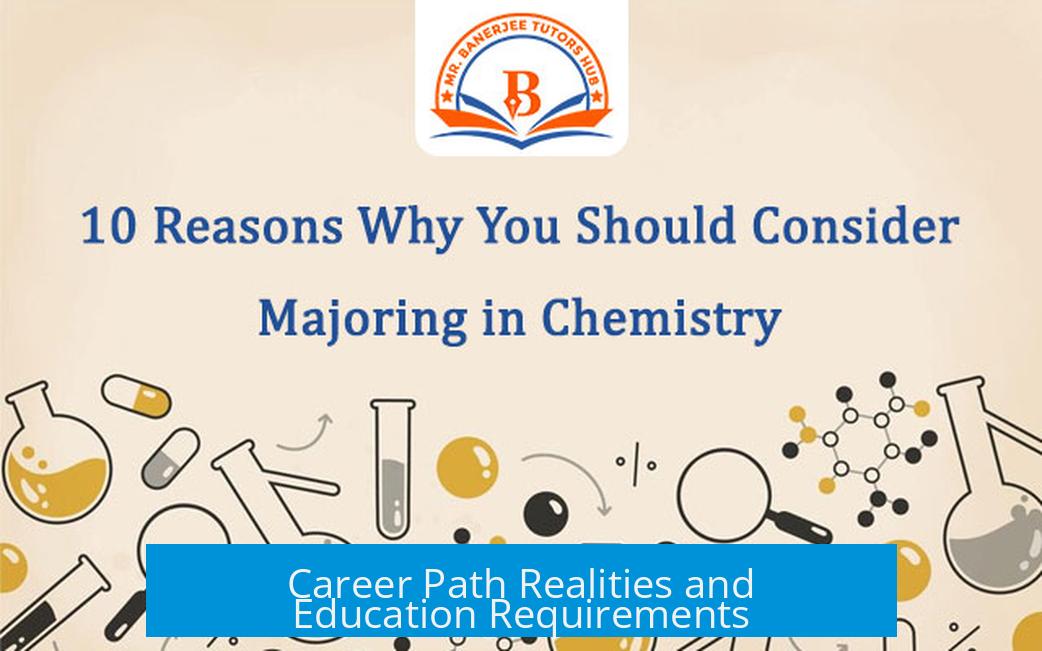
Chemistry careers vary by education level. If you want to engage in intellectual research and development (R&D), a PhD is almost essential. In academia, becoming a professor demands a PhD. In the industry, more than 95% of R&D roles require it.
A Bachelor of Science (B.S.) in chemistry typically qualifies you for technician or laboratory assistant jobs. A Master’s (M.S.) opens some additional doors but such roles are limited. If avoiding graduate school appeals to you but you still want to work in R&D, majors like materials science or various branches of engineering may be better options. These fields often provide R&D opportunities without the same PhD requirement.
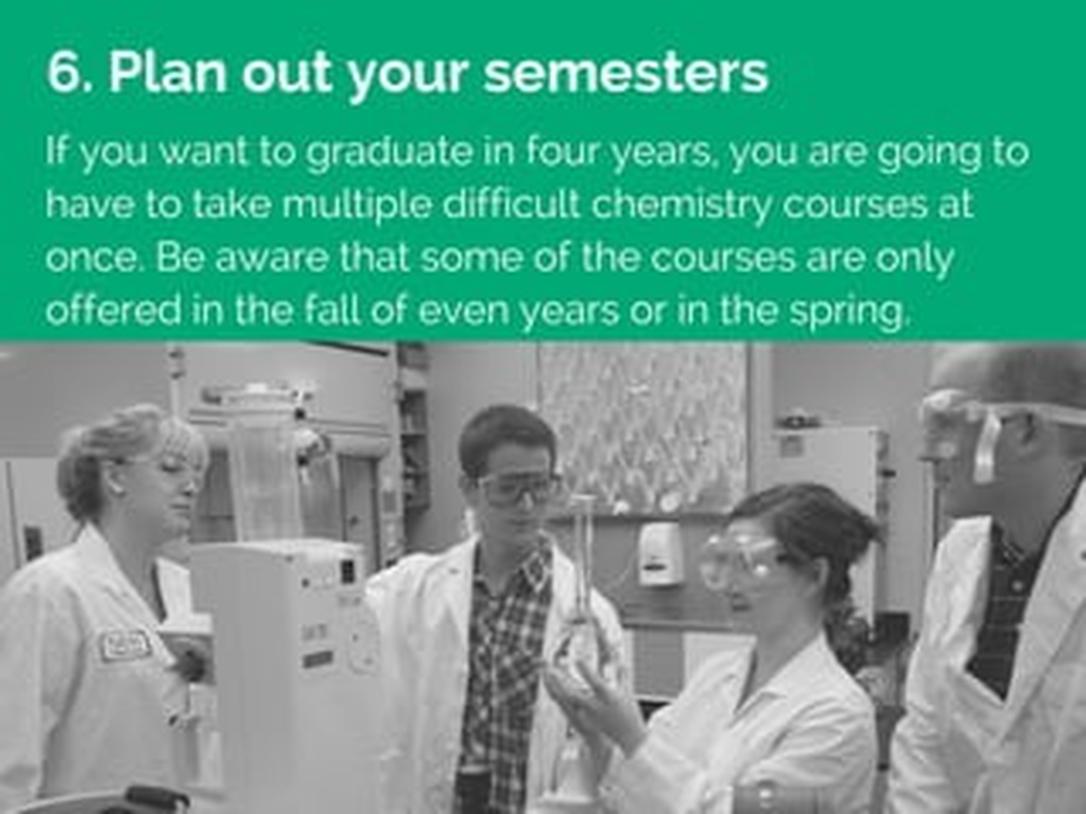
One consideration is that engineering and materials science courses are usually more mathematically rigorous. Your math skills should influence your choice.
Understanding the Professor Career
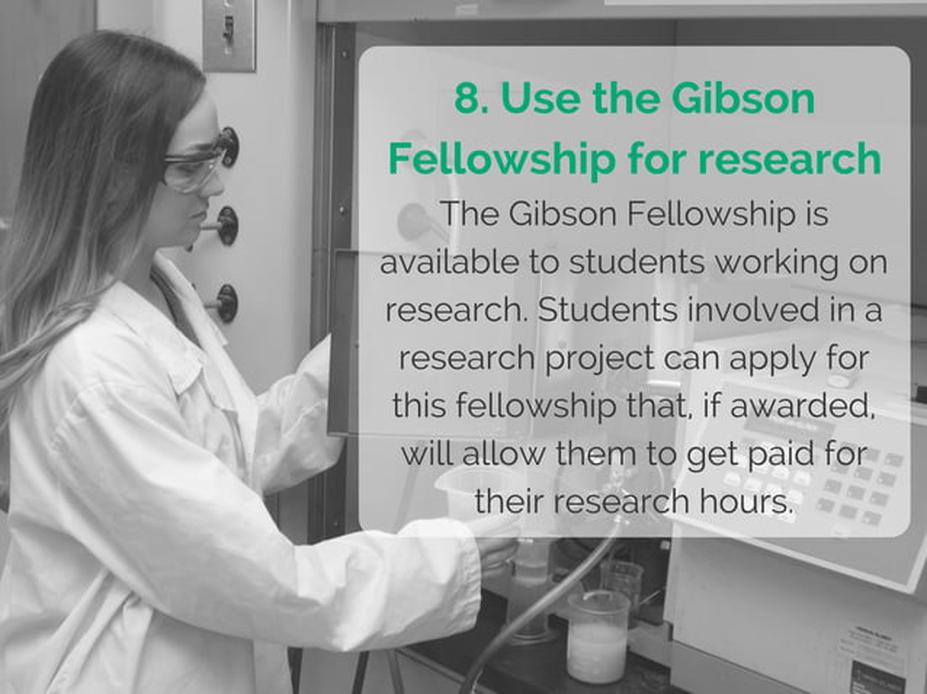
Many students dream of becoming professors but underestimate the job’s realities. Professors spend only a small fraction of their time creating new theories. Most of their work involves managing teams, securing funding, teaching, and administrative tasks.
The academic job market is highly competitive and depends heavily on research publications and a bit of luck. Becoming a chemistry professor is difficult and only a few reach this stage.
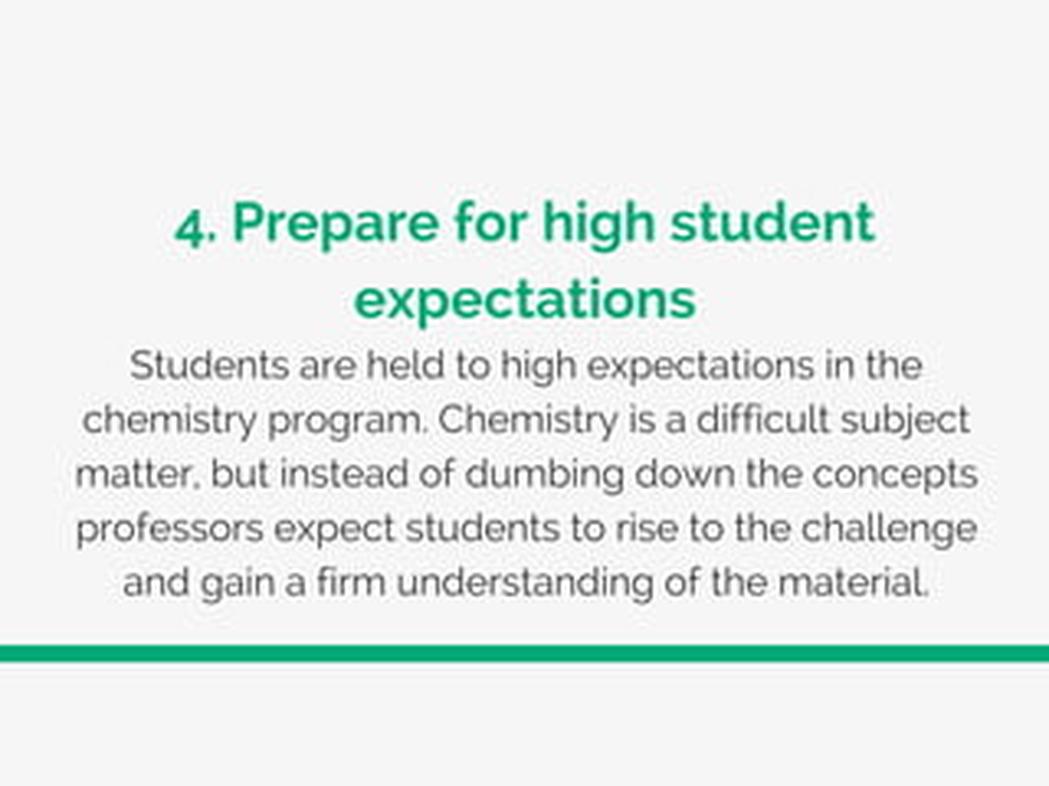
Grad school offers a clearer view of the professor’s role, so you will only understand its demands after committing to further education.
Value and Worth of Majoring in Chemistry

Chemistry can be a fulfilling major but obtaining satisfying, well-paying jobs may be more complicated compared to other fields. Here are key points to consider:
- If you love chemistry, majoring in it is a good choice.
- Majoring in chemistry is acceptable if you enjoy it and perform well.
- If you aim only to become a chemistry professor, this may not be the best route.
- Consider starting college undecided and taking introductory chemistry classes to test your interest.
- Advanced research roles require a PhD, so be sure you want this path before committing.
Job Market and Salary Prospects with Chemistry Degrees
Many chemistry graduates find roles in industry, quality assurance, environmental and pharmaceutical sectors. For example, it is common to see positions such as QA Manager held by individuals with a B.S. degree who earn over $50,000 annually.
A B.S. in chemistry provides a solid fallback for technical jobs and can lead to a stable career. Master’s or PhDs may help access higher salaries and research positions but aren’t always required. Smaller and mid-sized companies often employ B.S. holders in fulfilling roles.
Keep in mind, chemistry jobs can be competitive and salaries depend on your location and the sector. If maximizing income is the main goal, chemistry at the bachelor level is usually not the best choice.
Considerations and Alternative Paths
Graduate school is demanding and a major life decision. If you plan to pursue a PhD, consider the time commitment and challenges carefully.
Some graduates express regret and would choose fields with better job prospects, like software engineering or computer science. Learning a trade is also an alternative with strong demand and job security.
Your lifestyle and geographical preferences matter. Chemistry opportunities cluster in certain regions, so if you plan to live in a location with limited chemistry jobs, this path may be problematic.
Summary: Key Takeaways
- PhD is essential for R&D and academic careers in chemistry.
- Bachelor’s provides entry-level technical jobs but limited advancement.
- Majoring in chemistry suits those who genuinely enjoy the subject.
- Be realistic about job market competitiveness and salary at the bachelor level.
- Consider engineering or materials science for R&D without PhD and greater job stability.
- The professor career is highly demanding and competitive, seldom a direct route for undergraduates.
- Location and lifestyle preferences strongly influence career success in chemistry.
Should I Consider Majoring in Chemistry? (Is It Worth It?)
Majoring in chemistry can be worth it if you genuinely enjoy the subject and understand the career realities ahead. But before you dive into molecular structures and chemical reactions, it’s crucial to weigh the education requirements, job market, and lifestyle implications this major entails.
So, you’re staring down at a periodic table, wondering if chemistry deserves your college years. Let’s break it down. Jewelry-making with elements aside, chemistry is a demanding but rewarding science. Now, is it for you? Let’s find out!
Understanding the Career Path and Education Requirements
If your dream is to be a cutting-edge researcher, inventing new molecules or theories, brace yourself: you almost certainly need a PhD. It’s a hard truth, but academia and high-level R&D roles practically require this. A bachelor’s degree (B.S.) in chemistry generally lands you lab jobs that are hands-on but often routine—sometimes affectionately called “labrat” roles. An M.S. might open a few more doors, but those are scarce and competitive.
But wait! What if you want to be in R&D without the PhD marathon? Consider this: majors like materials science or various engineering disciplines (chemical, mechanical, electrical) often provide pathways into R&D without the extended grad school stint. These fields tend to demand stronger math skills, so if math and you don’t get along, factor that in.
Could this be the difference between science and engineering? In many cases, yes. Engineering educations lean more towards application than pure chemistry theory. So, if you want theory and research and hate math, you’re in a tough spot.
The Harsh but Honest Professor Perspective
Ever pictured professors as mad scientists inventing groundbreaking theories daily? Reality check: that’s less than 1% of their job. Being a chemistry professor is a whirlwind of managing grants, teaching classes, supervising students, and juggling multiple hats like subject matter expert and fundraiser.
Younger students often don’t realize the grit it takes to become and stay a professor. Many only get a full picture in grad school—if they even catch a break into academia. Competition is fierce, and success often hinges on factors beyond pure talent, including a bit of luck.
So, if your plan hinges solely on becoming a chemistry professor, be ready for a long, bumpy road where your love of chemistry might just keep you motivated rather than mere ambition.
The Value and Worth of Majoring in Chemistry
Here’s the candid scoop: chemistry can be highly rewarding, but landing a satisfying, well-paying job isn’t as straightforward as with other fields. It has its upsides, like the chance to work on meaningful, tangible problems like drug discovery, environmental solutions, or material innovation.
If you adore chemistry, absolutely go for it. Your passion will carry you through the tougher times. If you’re simply considering it because it sounds “cool” or “smart,” think twice and maybe test it out first.
Starting college undecided and taking a few chemistry classes is a savvy move. You won’t lose anything and might gain clarity about whether this is your calling.
Job Opportunities and Salary Expectations
What sort of jobs can you snag with a chemistry degree? Plenty, but pay attention: with just a B.S., you might be looking at lab technician roles, quality control, or production jobs. For example, a QA Manager with a biology or chemistry degree can expect to make around $50,000 or a bit more at age 32 in industry settings. This suggests steady but not dazzling salaries.
Sure, an M.S. or PhD can unlock higher-paying and more interesting roles, especially in research. But remember, many smaller companies and regions have fulfilling jobs for BS holders. The job market can be competitive, and salaries less eye-popping than tech or engineering. So, if money drives you, chemistry might not be the best bet.
Alternative Routes and Lifestyle Realities
Grad school is a big commitment and tough journey. Many who’d do it all over again might choose engineering or computer science instead, given the safer job prospects and often higher paychecks.
Think seriously about where you want to live. Chemistry jobs are not evenly spread across the country. If you need to stay in a certain area without many chemistry employers, landing a job might be harder than finding helium during a party!
Ultimately, your choice depends on more than career prospects. It’s about lifestyle, priorities, and passion. Are you cool with longer education and some uncertainty? Do you dream about working in a lab or teaching? Or would you prefer fields with broader application and higher demand?
To Chemistry or Not to Chemistry?
“Magnesium, NaCl, and caffeine might sound like fun, but a chemistry degree isn’t just about fancy formulas; it’s about knowing what you want and preparing well.”
Summing it all up: Major in chemistry if you truly love the subject and are ready for the challenge. Know that higher degrees open doors to better roles. Consider alternative majors if you want faster entry into R&D or better pay. Test the waters with classes before committing.
In the end, is majoring in chemistry worth it? If your passion burns brighter than a Bunsen burner, yes. Otherwise, keep exploring until you find a subject that sparks your curiosity and suits your goals.
Can I get a good job with just a bachelor’s degree in chemistry?
Yes, many chemistry graduates find jobs with a B.S. You can work in roles like lab technician or quality assurance. Salaries around $50k are common, but high-paying roles usually need advanced degrees.
Is a PhD necessary for research and development careers?
For most R&D and academic roles, a PhD is almost essential. Industry jobs often require a PhD if you want to lead projects or innovate at a high level.
What should I consider before majoring in chemistry?
Think about your passion for chemistry and the commitment for grad school if aiming for R&D or academia. Try taking classes first to see if you like it. Job prospects vary by location and degree level.
Is becoming a professor a realistic goal after majoring in chemistry?
Becoming a chemistry professor is very hard. It requires a strong publication record and other non-teaching tasks. Most students don’t fully understand this early on.
Are there alternative majors for R&D without a PhD?
Yes. Majors like materials science or chemical engineering can lead to R&D jobs without a PhD. These fields often have more math, so consider your skills.


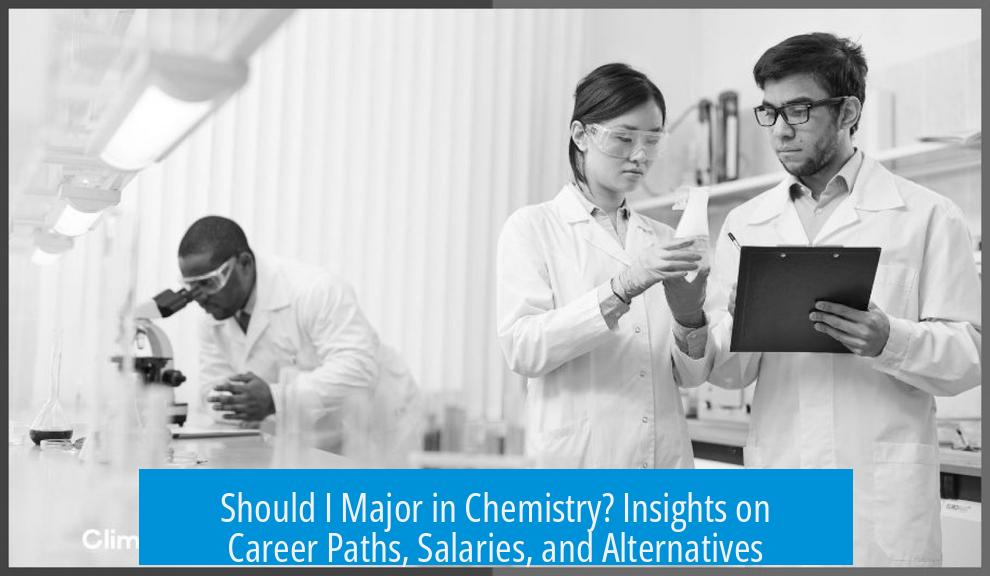

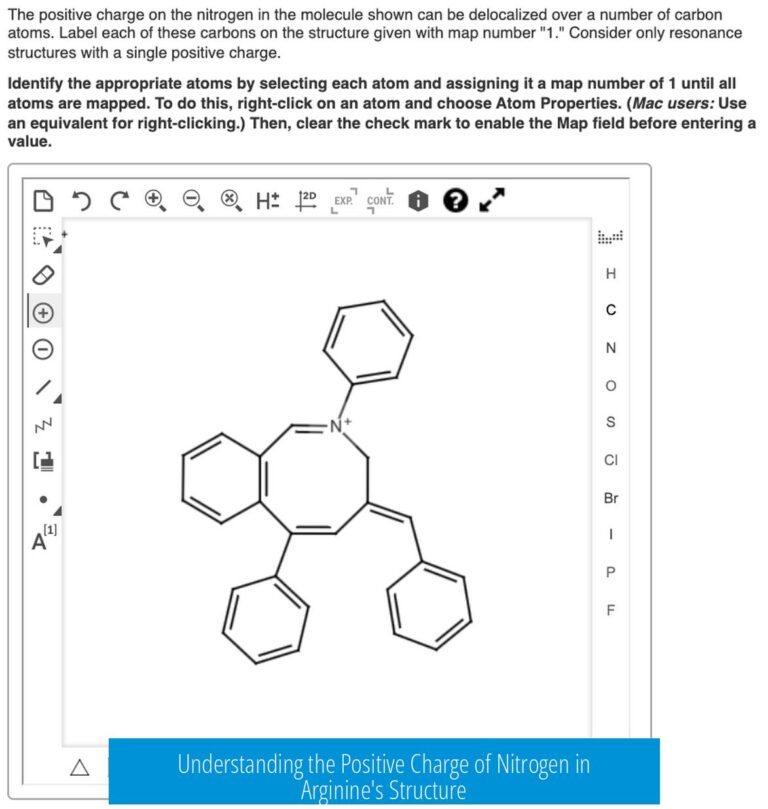
Leave a Comment